.webp)
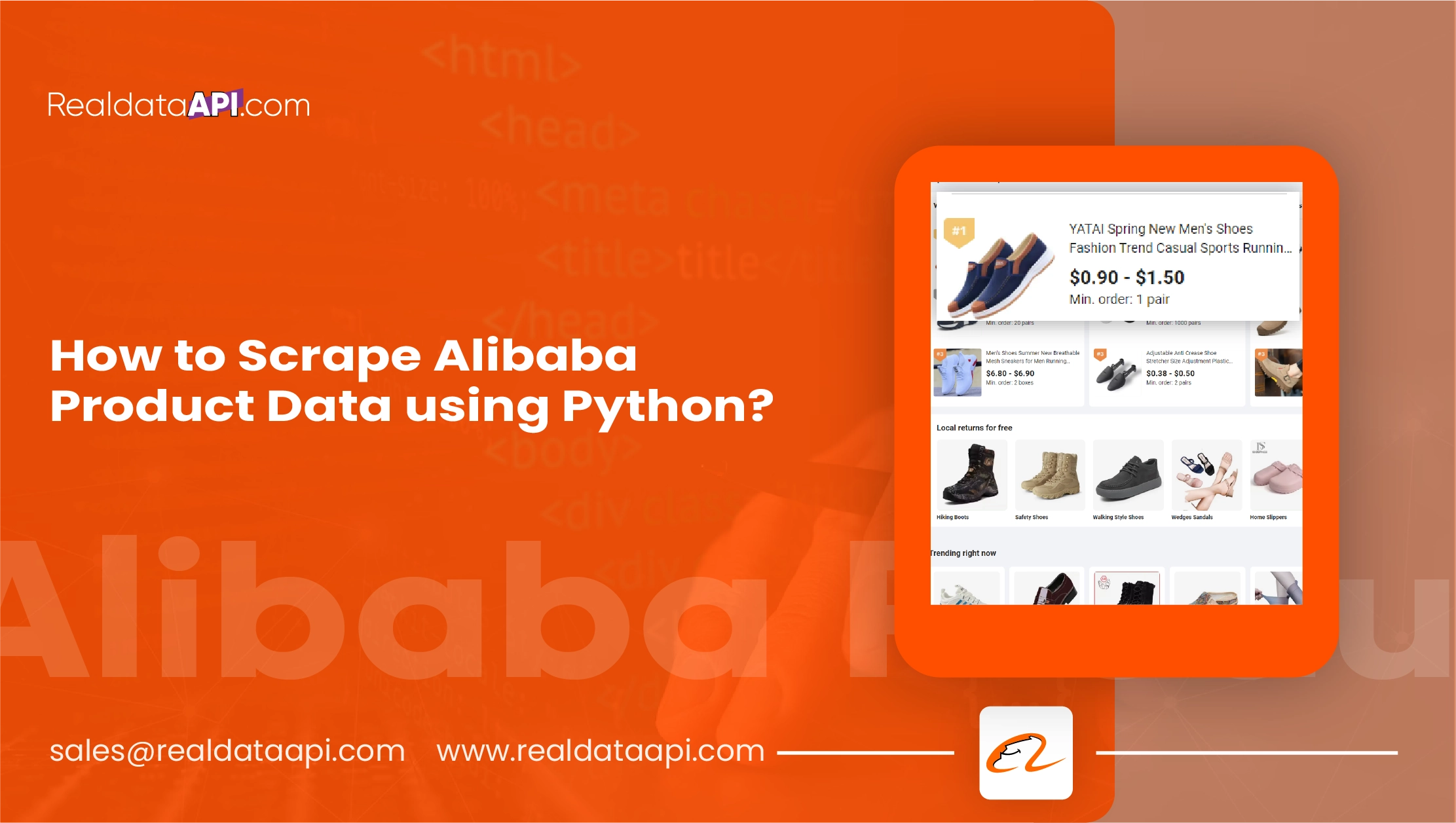
Introduction
In the era of e-commerce dominance, Alibaba stands as one of the world's largest online marketplaces, offering a vast array of products from suppliers across the globe. For businesses and researchers looking to gain insights into market trends, competitor pricing, or product availability, scraping Alibaba product data can provide invaluable information. In this comprehensive guide, we'll explore how to scrape Alibaba product data using Python, leveraging the power of web scraping services.
What is Web Scraping?
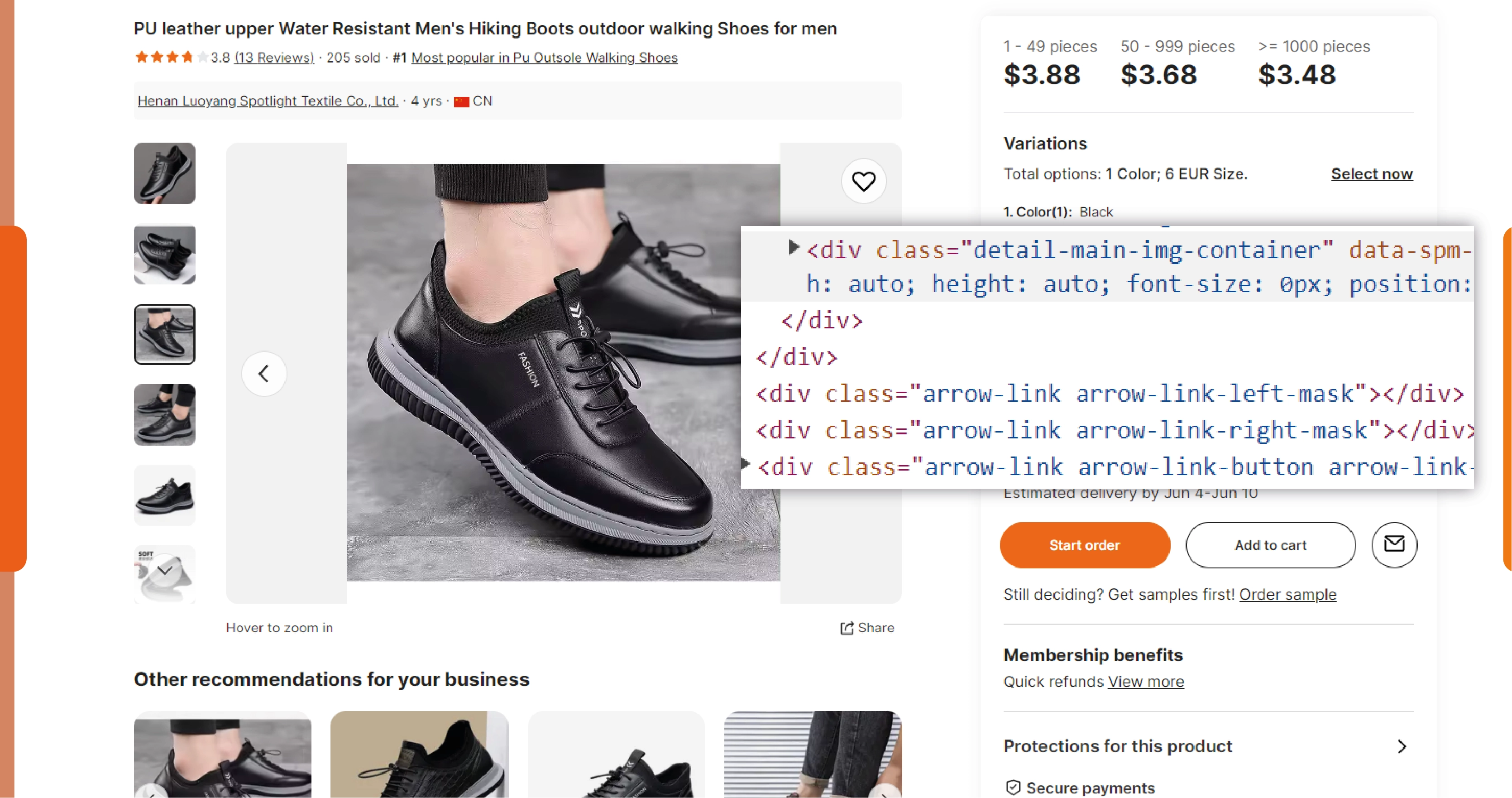
Web scraping is the process of extracting data from websites. Using automated scripts or tools, web scrapers collect information from web pages, transforming unstructured data into a structured format that can be analyzed and utilized. This procedure empowers businesses and researchers to collect valuable insights, observe market trends, monitor competitor activity, and make well-informed decisions. By automating Alibaba data extraction, web scraping streamlines the process of gathering large volumes of information from the web, saving time and effort compared to manual data collection methods. Additionally, web scraping facilitates web data integration into various applications, databases, and analytical tools, enabling organizations to leverage the vast amount of information available on the internet for their specific needs.
Why Scrape Alibaba Data?
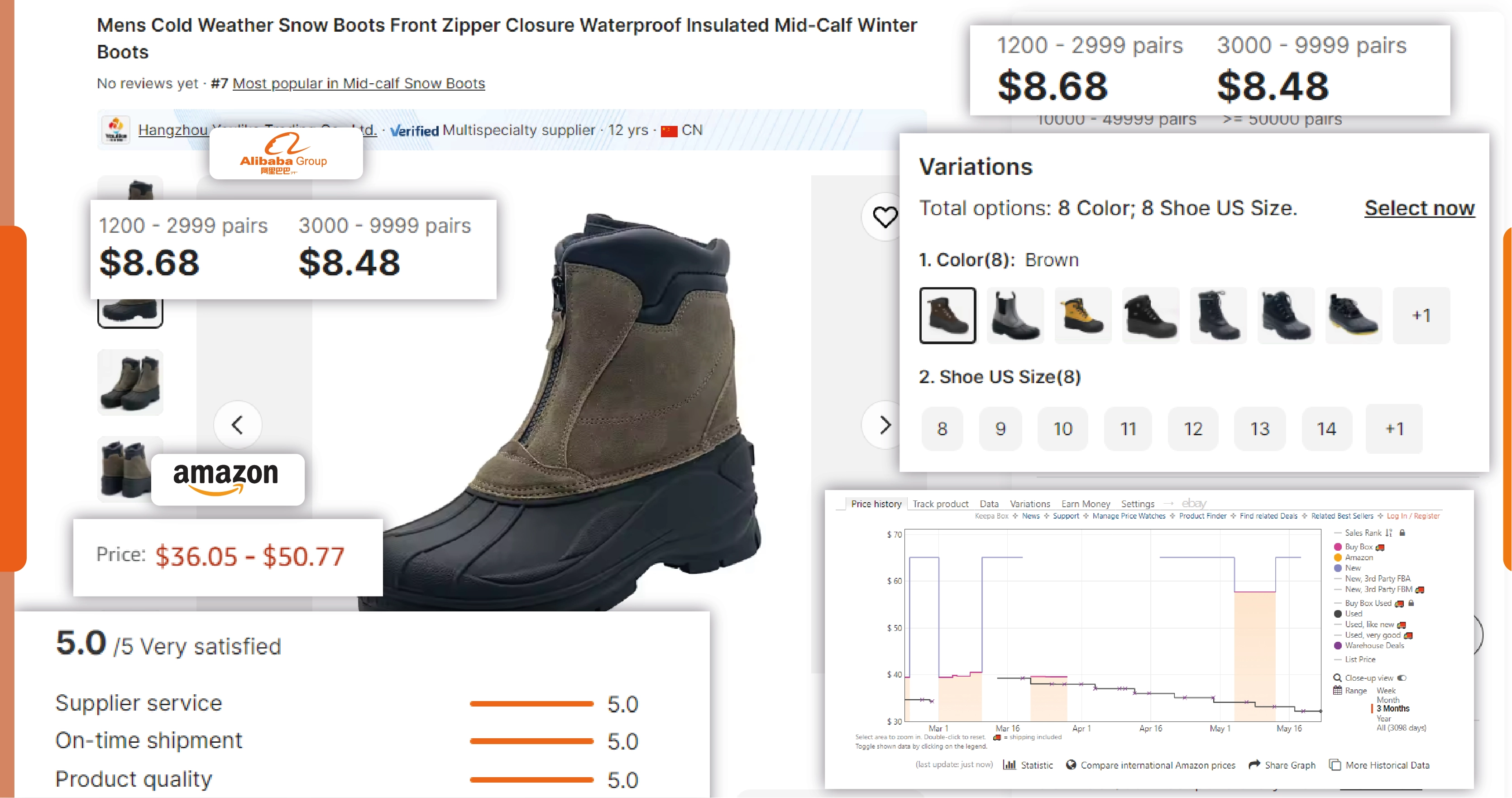
To extract Alibaba data using Python or other tools offers numerous benefits for businesses, including market research, price comparison, competitor analysis, strategic decision-making, and enhanced market positioning. By harnessing the power of web scraping services, companies can unlock valuable insights that drive growth, innovation, and success in today's competitive business landscape.
Market Research: To extract Alibaba data using Python or Alibaba data scraper provides businesses with invaluable insights for market research. Companies can gain a comprehensive understanding of the market landscape by analyzing trends, consumer preferences, and product demand on the platform. The data extracted, such as product categories, sales volumes, and customer reviews, provides businesses with a wealth of information that can inform their strategies and give them the confidence to make informed decisions.
Price Comparison: Scraping Alibaba product data allows businesses to conduct thorough price comparisons across suppliers. Companies can identify the most cost-effective sourcing options by extracting pricing information for similar products. This enables them to optimize their procurement strategies and negotiate better deals with suppliers, ultimately improving cost efficiency and profitability.
Competitor Analysis: Extract Alibaba data using Python enables businesses to perform in-depth competitor analysis. By scraping product listings, descriptions, and pricing details from rival sellers, companies can gain insights into competitor offerings, pricing strategies, and customer feedback. This information empowers businesses to identify gaps in the market, refine their product offerings, and develop competitive pricing strategies to capture market share.
Strategic Decision-Making: Alibaba data collection and extraction support strategic decision-making processes. By leveraging scraped data, businesses can make informed decisions about product development, inventory management, and marketing strategies. Whether identifying emerging trends, assessing consumer sentiment, or evaluating market saturation, Alibaba data is a valuable resource for guiding strategic initiatives.
Enhanced Market Positioning: Scraping Alibaba data equips businesses with the tools not just to keep up, stay ahead of the curve, and maintain a competitive edge in the marketplace. By monitoring market trends, tracking competitor activity, and analyzing consumer behavior, companies can adapt their strategies in real-time to capitalize on opportunities and mitigate risks. This proactive approach to market intelligence ensures that businesses remain agile and responsive to changing market dynamics, giving them a competitive advantage that can't be ignored.
Setting Up Your Environment
To begin scraping Alibaba data, you'll need:
Python installed on your system
Necessary libraries like requests, BeautifulSoup, or playwright
Scraping Alibaba Product Data using Python
Method 1: Using Requests and BeautifulSoup
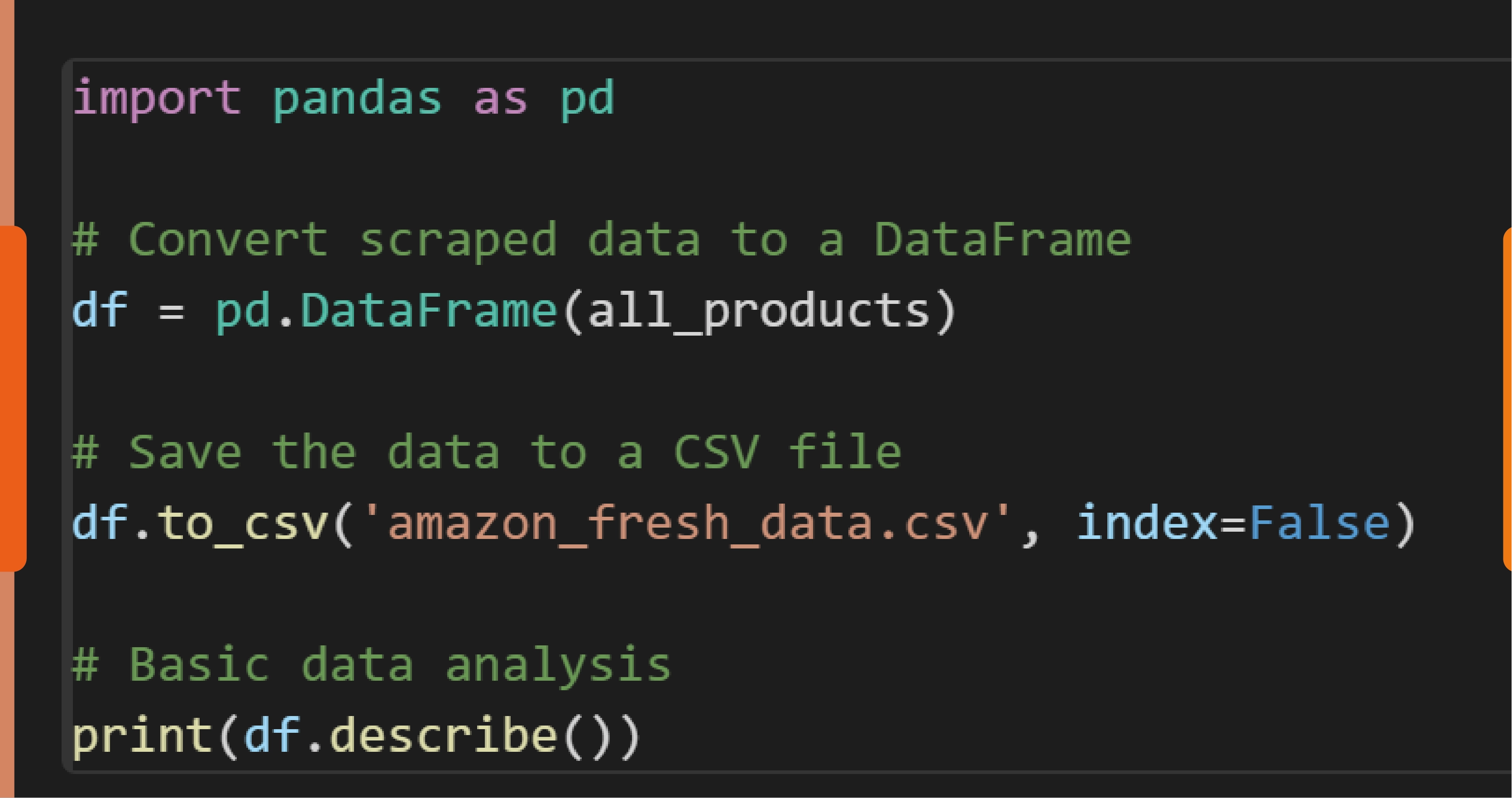
Method 2: Using Playwright
Playwright is a powerful tool for automating browser interactions and scraping dynamic content. Here's how to scrape Alibaba using
Playwright:
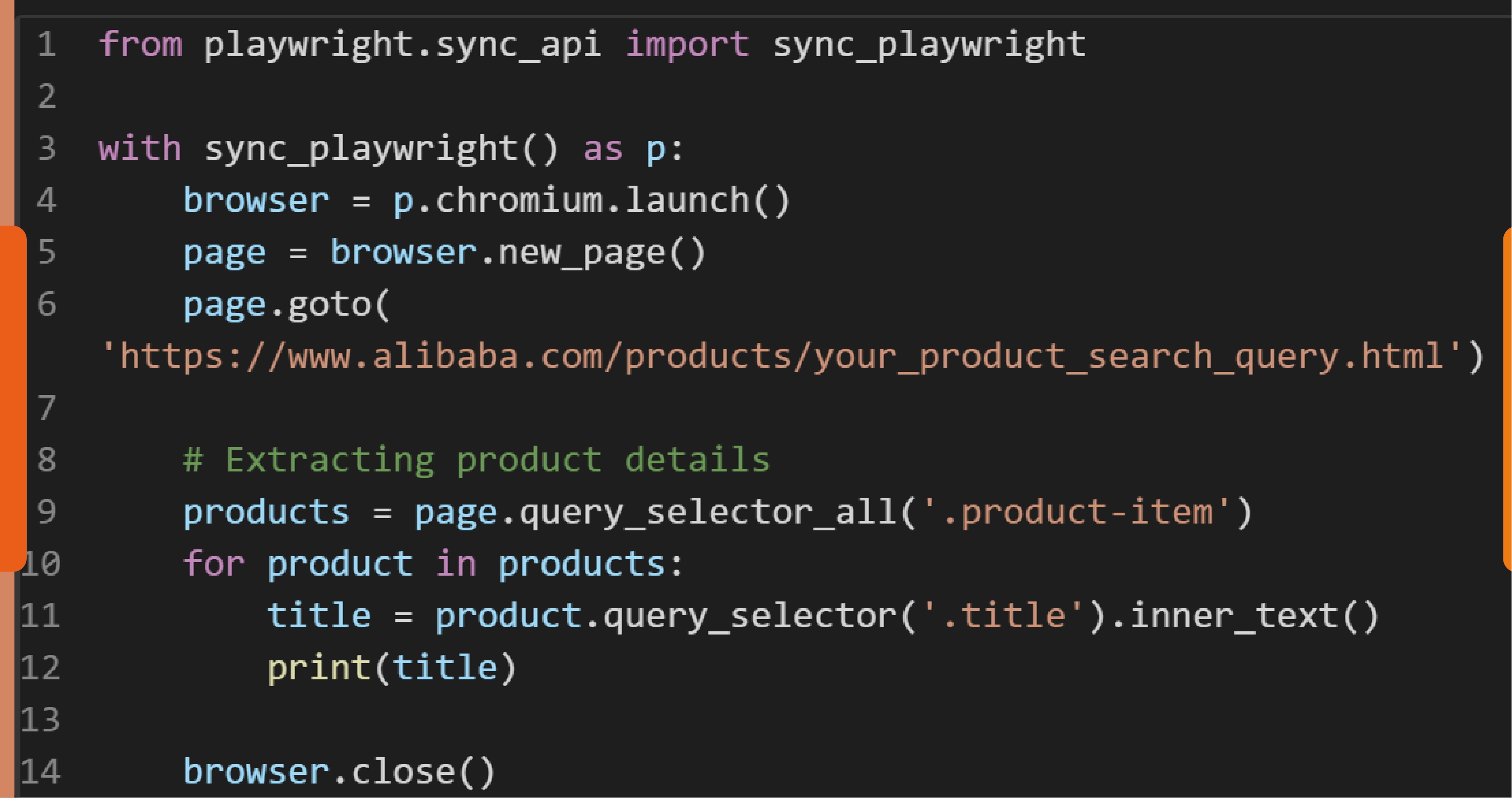
Best Practices for Scraping Alibaba Data
Respect Robots.txt: Check Alibaba's robots.txt file to understand scraping restrictions and guidelines.
Use Delay and Proxies: Implement delays between requests and rotate proxies to avoid IP blocking.
Scrape Ethically: Abide by Alibaba's terms of service and respect their intellectual property rights.
Handle Dynamic Content: Use tools like Playwright or Selenium to handle JavaScript-generated content.
Applications of Alibaba Data Scraping
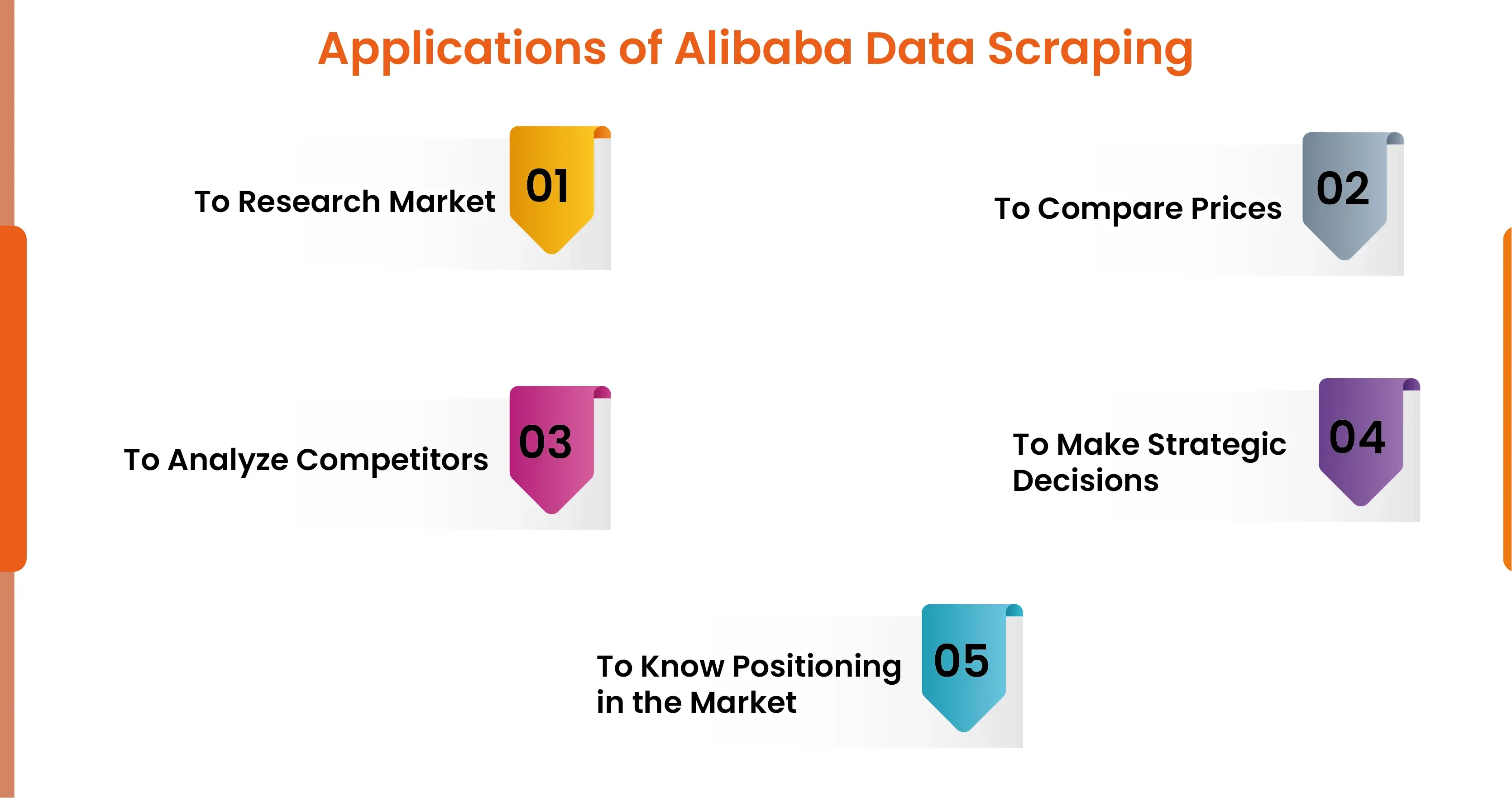
To Research Market : Web scraping Alibaba data using Python or similar tools facilitates comprehensive market research. By extracting data on product categories, sales trends, and consumer preferences, businesses can gain insights into market dynamics and identify emerging trends.
To Compare Prices: Alibaba data scraping enables businesses to conduct thorough price comparisons across multiple suppliers. By extracting pricing information for similar products, companies can optimize their procurement strategies and negotiate better deals, enhancing cost-efficiency.
To Analyze Competitors: Alibaba data collection and extraction support in-depth competitor analysis. By scraping product listings, descriptions, and pricing details from rival sellers, businesses can analyze competitor offerings, pricing strategies, and customer feedback to refine their own strategies and gain a competitive edge.
To Make Strategic Decisions: Extracting Alibaba data using Python empowers businesses to make informed strategic decisions. Whether it's identifying market trends, assessing consumer sentiment, or evaluating product performance, scraped data provides valuable insights for guiding strategic initiatives and driving business growth.
To Know Positioning in the Market: Alibaba data scraping allows businesses to enhance their market positioning by staying abreast of market trends and consumer preferences. By monitoring market dynamics and competitor activity, companies can adapt their strategies in real-time to capitalize on opportunities and maintain a competitive edge in the marketplace.
Conclusion
Scraping Alibaba product data using Python unlocks a realm of opportunities for businesses and researchers seeking valuable insights. Real Data API offers a seamless solution for extracting Alibaba data, enabling market research, price comparison, and competitor analysis. With Real Data API, businesses can harness the power of web scraping services effortlessly, leveraging Python libraries like BeautifulSoup and Playwright. However, it's crucial to scrape responsibly, adhering to ethical guidelines and Alibaba's terms of service for a sustainable scraping experience.
Real Data API empowers businesses to thrive in the dynamic e-commerce landscape by providing access to valuable Alibaba data. Take the next step towards informed decisions and business growth with Real Data API today!













